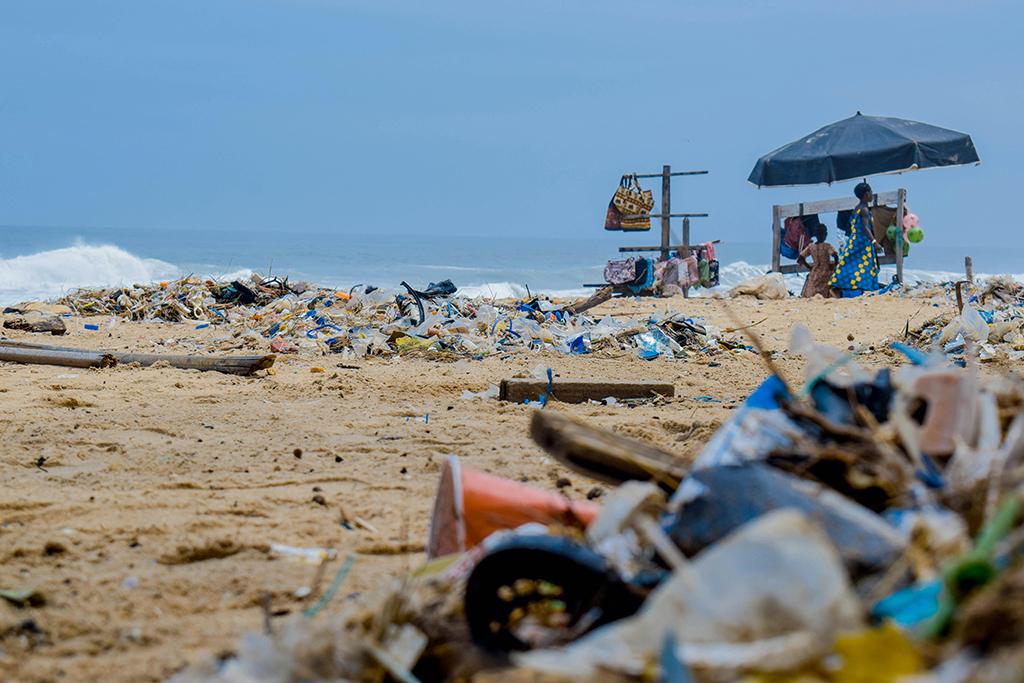Interviews
U Academics. Chile's Biodegradable Films Made from Eggshells to Reduce Plastic Use
- June 18, 2024
- Publicado por: ACCDIS
- Category: ACCDiS in Media
 Interdisciplinary collaboration of the University of Chile made it possible to develop biodegradable and vermicompostable films from alginate and discarded eggshells, innovative solution that not only seeks to reduce dependence on traditional plastics, but also to take advantage of common waste. The product, stronger and biodegradable in 14 to 21 days, Can be used in food packaging and medical applications, standing out for its environmental contribution and potential in the circular economy. The work was recently published in the prestigious international scientific journal Food Hydrocolloids.
Interdisciplinary collaboration of the University of Chile made it possible to develop biodegradable and vermicompostable films from alginate and discarded eggshells, innovative solution that not only seeks to reduce dependence on traditional plastics, but also to take advantage of common waste. The product, stronger and biodegradable in 14 to 21 days, Can be used in food packaging and medical applications, standing out for its environmental contribution and potential in the circular economy. The work was recently published in the prestigious international scientific journal Food Hydrocolloids.
The environmental impact of plastic is a global concern. For this reason, with the aim of moving towards a more environmentally friendly development, a group of researchers from the University of Chile led by ProfessorCarolina Valenzuela, of the Faculty of Veterinary and Livestock Sciences (FAVET), and the teacherFelipe Oyarzun-Ampuero, of the Faculty of Chemical and Pharmaceutical Sciences (FACIQYF) and ACCDiS researcher, They managed to make biodegradable and vermicompostable films from alginate and discarded eggshells.
Professor Valenzuela, academic of the Department of Promotion of Animal Production of FAVET, Explain how the idea came about: “We are always looking for ways to make production more sustainable, reusing waste that is produced in human food to feed animals. In addition, Non-biodegradable plastics are a huge problem for wildlife. We decided to tackle both of these problems using eggshells, which are an abundant waste in Chile, one of the countries with the highest consumption of eggs in the world“.
These biodegradable filmsnot only do they have the potential to reduce reliance on traditional plastics, but also allow this commonly discarded material to be reused. Eggshells, composed mainly of calcium carbonate, provide mechanical properties that improve the strength of films, while making them more sustainable.
Research, Entitled “Development of biodegradable and vermicompostable films based on alginate and waste eggshells”, Wasrecently published in the prestigious international scientific journal Food Hydrocolloids, highlighting the work of the entire team also made up of researchers Valeria Villanueva and Fabrizzio Valdés, by FAVET; along with Eduardo Soto-Bustamante, Patricio Romero-Hasler, Ana Luisa Riveros and María Gabriela Villamizar-Sarmiento, of FACIQYF.
On the other hand, Professor Oyarzun-Ampuero, academic and director of the Department of Pharmaceutical Sciences and Technology of the U. of Chile, underlines the importance of interdisciplinary collaboration in this project. “The combination of knowledge in animal production and pharmaceutical technology has been key. Scientific and technical conversations between our faculties have made it possible to create innovative material that has been published in one of the best journals in the field of food”.
Properties and applications
The films developed are characterized by beingstronger and less elastic with increased eggshell content. “These films could be used for food packaging or as food coatings, and they also have the potential to be used in medical applications for controlled drug release”, adds Professor Valenzuela, who is also the director of Postgraduate Studies of her academic unit.
The process of creating these films involves suspending the eggshell powder in a solution of alginate and glycerol, followed by mixing and drying. Tests showed that The films are highly soluble in water and completely biodegradable in vermicomposting within 14 to 21 days, which demonstrates its potential as a sustainable alternative to conventional plastics.
Environmental impact
The ability of these films to degrade completely in a short period of time represents a significant environmental advantage. “Rapid biodegradability is crucial to reduce the accumulation of plastic waste in the environment“, comments Professor Oyarzun-Ampuero.
In addition, theUse of eggshells in this context contributes to the circular economy, transforming a problematic waste into a valuable resource. “Eggshells are difficult to handle and have a high risk of contamination, but in our films they become a crucial structural component”, adds Professor Valenzuela.
Future of research
The researchers plan to continue exploring the applications of these films in different fields, including the release of antioxidants and drugs. “We are working on a second phase of the project to further optimize the properties of the films and expand their applications“, says Dr.. Valenzuela.
This breakthrough represents a significant technical innovation, which also highlights the value of interdisciplinary collaboration and commitment to environmental sustainability.
Read also here HTTPS:uchile.cl/noticias/217226/academicos-uchile-crean-films-biodegradables-con-cascaras-de-huevo
